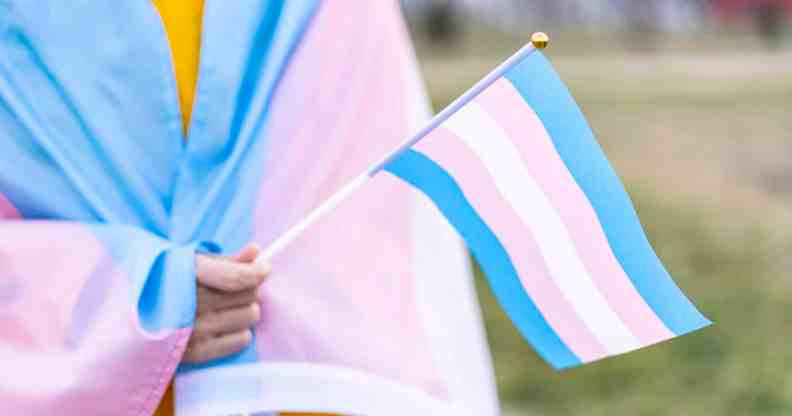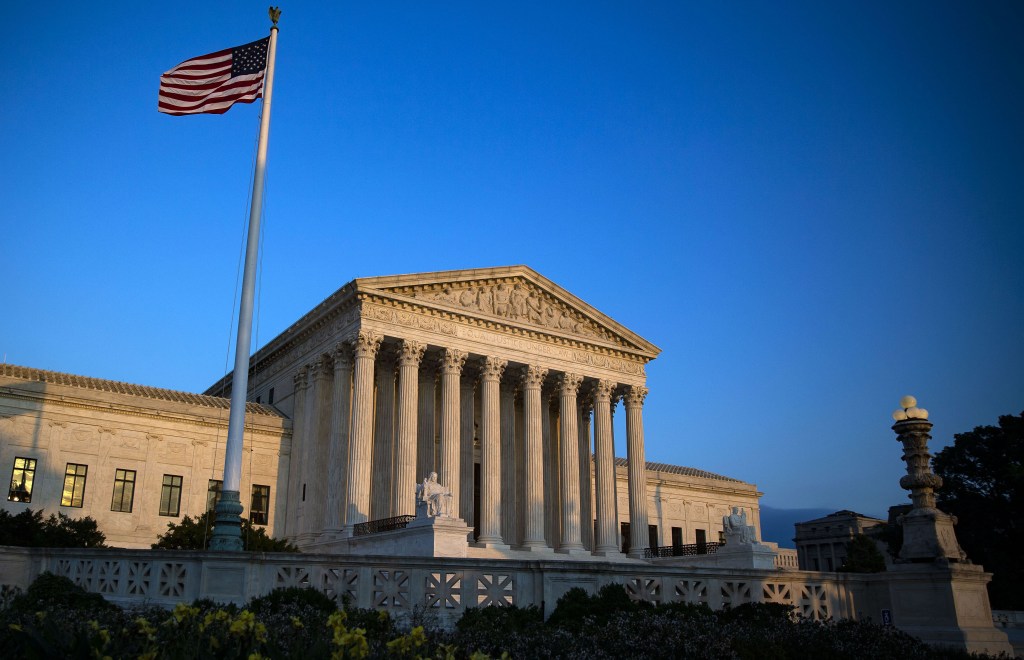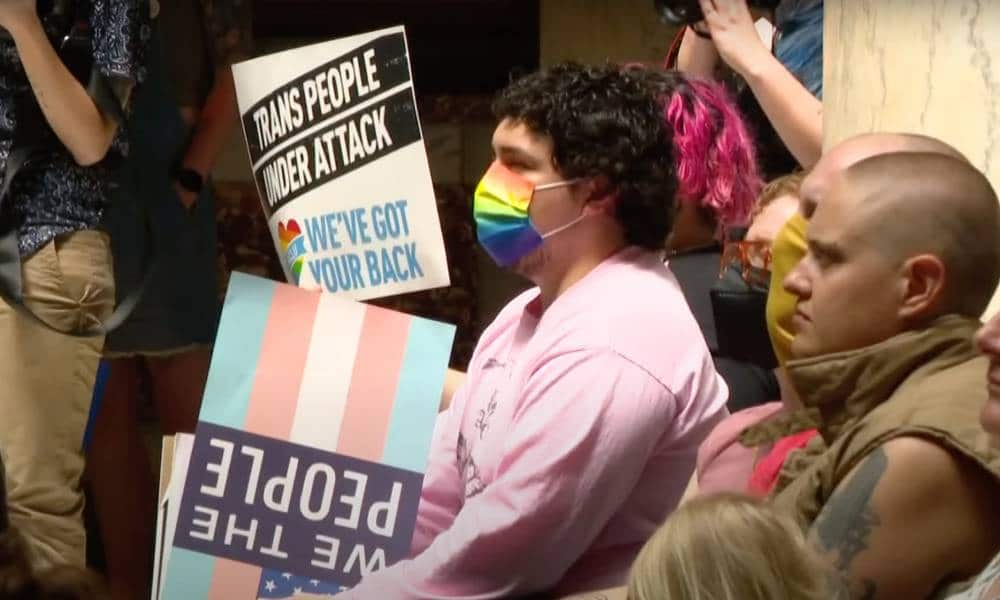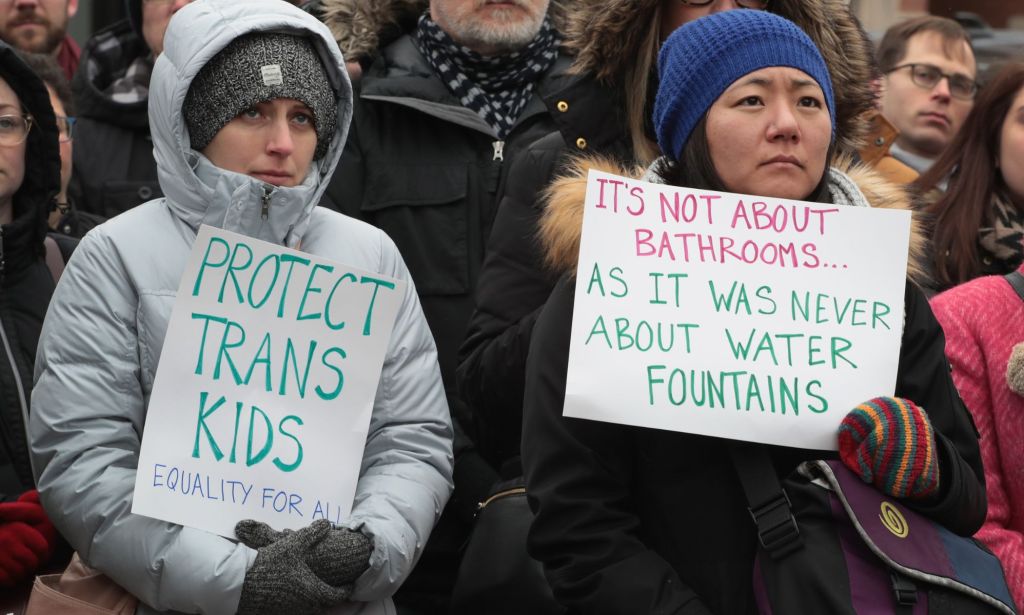Supreme Court rejects appeal request in transgender student bathroom ban case

The Supreme Court has refused to hear a school district’s appeal to restrict transgender students’ bathroom access. (Getty/Vladimir Vladimirov)
The United States Supreme Court has turned down a request to hear a case centered around transgender students and the bathrooms they use.
Martinsville school district in Indiana had appealed to the Supreme Court to hear their case after they refused to allow trans students to use the bathrooms that best align with their gender identity.
On Tuesday (16 January), the Supreme Court rejected the Martinsville school district’s appeal attempt without comment.
Their request came after the 7th Circuit Court ruled that the school district’s policy that restricted transgender students from accessing the bathrooms that align with their gender identity would violate civil rights laws.

In 2023, the case of Metropolitan School District of Martinsville vs A.C. was heard by the 7th Circuit Court of Appeals in Chicago.
The court ruled in favour of transgender students, stating that the school’s policy to restrict bathroom access for transgender students violated Title IX of the Education Amendments of 1972 and the Equal Protection Clause of the 14th Amendment.
Title IX of the Education Amendments of 1972 prohibits sex discrimination at educational institutions that receive federal funding.
The Equal Protection Clause of the 14th Amendment says that US states shall not enact laws that “abridge the privileges or immunities of citizens of the United States,” nor can they “deny to any person within its jurisdiction the equal protection of the laws.”
Commenting on the Supreme Court’s decision, Kelley Robinson, the president of the Human Rights Campaign celebrated the ruling but noted that there was lots more work to be done to protect transgender and non-binary youth.

“Every kid deserves to be treated with kindness and respect – full stop,” she said.
“This decision affirms the rights of transgender students, but we know that there is still so much work to be done.
“From book bans to ‘Don’t Say LGBTQ+’ laws, LGBTQ+ youth – especially transgender and non-binary youth – are facing hate-fueled, targeted attacks designed to censor and erase them.
“We must continue to fight for LGBTQ+ students so that every child, no matter their race, religion, or gender identity, can live, learn, and thrive as their authentic selves.”
This marks the latest of many attempts to restrict LGBTQ+ students and their access to basic facilities like bathrooms, or their ability to play on school sports teams.

Currently, the American Civil Liberties Union (ACLU) is tracking 278 anti-LGBTQ+ bills being considered across the United States.
Other proposed anti-LGBTQ+ bills being examined or introduced propose restricting transgender or non-binary peoples’ abilities to update their gender information on official documents, censoring free speech through drag bans, blocking transgender and non-binary people’s access to gender-affirming healthcare or healthcare funding, and forcing school staff to out students to their parents.
In 2023, over 500 anti-LGBTQ+ bills were introduced across 49 states. Already in 2024, states like West Virginia, Alabama, Florida and South Carolina are proposing even more discriminatory laws.
An exhaustive rundown of anti-LGBTQ+ bills being tracked can be found on the Trans Legislation website.
How did this story make you feel?

